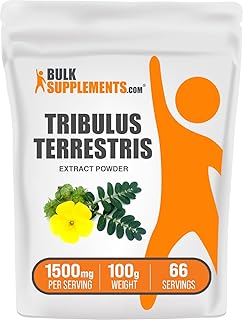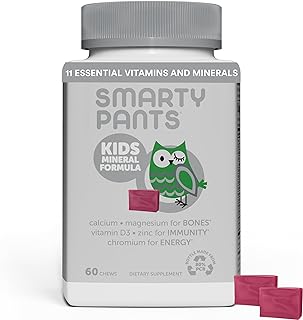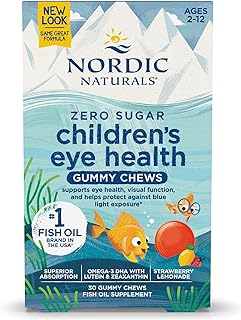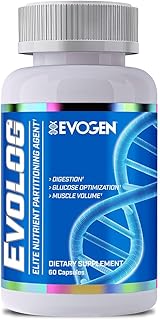When looking at supplements for children with ADHD, it is important to consider the role of magnesium. Deciding on the right magnesium supplement involves thinking about things like purity, dosage, and form, as well as understanding the child’s individual needs. These factors are crucial in making sure the supplement is effective and appropriate. This article will explore important considerations for choosing a magnesium supplement that works well for children with ADHD.
See our guide to the best magnesium supplement for kids with adhd.
Type of magnesium compound (e.g. magnesium citrate, magnesium glycinate)
When parents are looking into supplements for children with ADHD, they need to consider which type of magnesium is best. There are different kinds like magnesium citrate and magnesium glycinate, each with its own advantages. Magnesium citrate is good for easily absorbing magnesium to fix deficiencies quickly. On the other hand, magnesium glycinate is gentle on the stomach and doesn’t cause any digestive issues. However, it’s important to understand what works best for each child with ADHD since everyone can react differently to different types of magnesium.
To find the right magnesium supplement for a child with ADHD, it’s important to look at more than just the type of magnesium. The quality, amount, and how it interacts with other medications are all vital for safety and effectiveness. It’s crucial to talk to healthcare professionals to pick the right magnesium for the child’s specific needs. By making informed decisions together, parents and healthcare providers can find a personalized magnesium supplement that helps manage ADHD symptoms effectively.
Dosage amount appropriate for children
When deciding on the best amount of magnesium supplements for kids with ADHD, it’s important to be careful. Magnesium can help with ADHD symptoms, but it’s important to find the right amount for each child. Talk to a healthcare provider or pediatrician before giving magnesium supplements to make sure the dose is right for your child. Understanding your child’s specific needs can make a big difference in how well the supplement works for their ADHD symptoms.
It’s also a good idea to watch how the magnesium affects your child and adjust the dose as needed. Stay in touch with your child’s healthcare provider to see if there are any improvements or side effects. The goal is to find the right balance between getting the benefits of magnesium and making sure it’s safe and effective for your child. By being proactive and paying attention to your child’s needs, you can confidently figure out the right magnesium dose and help manage their ADHD symptoms effectively.
Form of supplement (e.g. liquid, capsule, chewable)
When choosing a magnesium supplement for children with ADHD, it’s important to think about the type of supplement you’re getting. Liquid supplements might absorb faster, but capsules and chewables are easier to take. The right choice depends on what your child likes and what works best for them. Some kids may prefer mixing a liquid supplement into their favorite drink, while others might like taking a capsule or chewable tablet. The best magnesium supplement is one that fits easily into your child’s daily routine and gives them the right amount they need.
The type of supplement your child takes can affect how well they stick to their magnesium routine. If your child has trouble swallowing pills, a chewable or liquid option could help make sure they take their supplement regularly. Considering things like taste and ease of use can also make a big difference in helping your child get all the benefits of their magnesium supplement. It’s important to compare the different options and focus on what your child likes to create a successful routine that supports their overall health and ADHD symptoms.
Allergen information (e.g. gluten-free, dairy-free)
When selecting magnesium supplements for children with ADHD, it is important to consider allergen information. Choosing supplements that are gluten-free and dairy-free is crucial to respect the child’s dietary restrictions while meeting their specific needs. This not only helps prevent adverse reactions but also shows care and mindfulness in choosing supplements for kids with ADHD.
Making sure the magnesium supplement is free from common allergens like gluten and dairy supports the child’s physical well-being and mental health. It gives parents confidence in the products being used and ensures they are meeting their child’s nutritional needs without adding unnecessary risks. Selecting allergen-free magnesium supplements for ADHD management shows a proactive approach to holistic care that prioritizes the child’s overall well-being.
Quality and purity of ingredients
When selecting magnesium supplements for children with ADHD, it is important to focus on the quality and purity of ingredients. There are many products on the market, but not all of them are the same. Choosing supplements with high-quality, pure ingredients ensures that the product is effective and safe for your child. It’s important to avoid additives, fillers, or unknown substances to make sure your child is getting a reliable and beneficial supplement. While high-quality magnesium supplements may be more expensive, the peace of mind that comes from knowing your child is taking a safe product is priceless.
It is also crucial to choose magnesium supplements from reputable manufacturers that undergo rigorous testing. By selecting brands that are transparent and have strict quality control measures, you can trust the supplement you give to your child. Making sure the supplement is free from contaminants and meets high purity standards not only improves its effectiveness but also reduces the risk of side effects. Remember, when it comes to your child’s health, it’s not worth compromising on the quality and purity of ingredients.
Conclusion
Overall, using magnesium supplements for children with ADHD could be a good option instead of regular medication. The possible benefits include better focus, less hyperactivity, and improved emotional control, which could be helpful for parents looking for natural ways to help their children. More research is necessary to fully grasp the effects of magnesium supplementation, but current evidence shows that adding this mineral to a child’s diet could be beneficial for their treatment plan. By investigating the potential of magnesium supplements in addressing ADHD symptoms, families might discover new approaches to supporting their child’s health and happiness.



